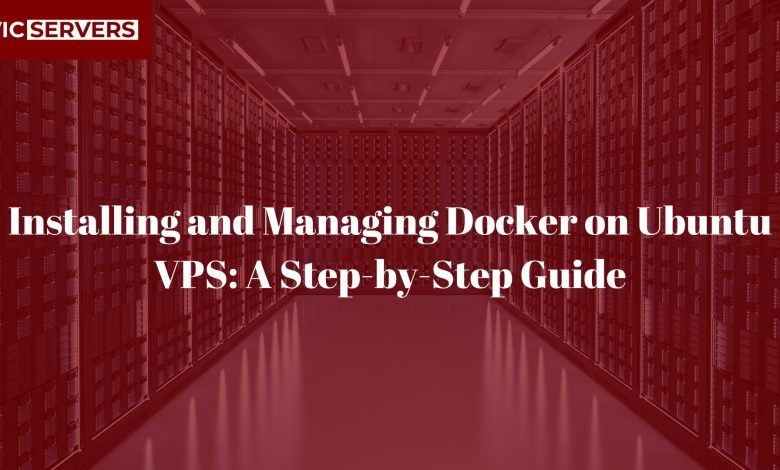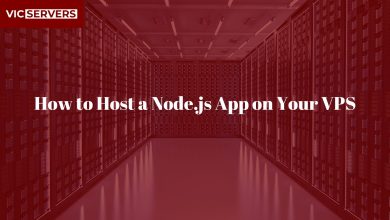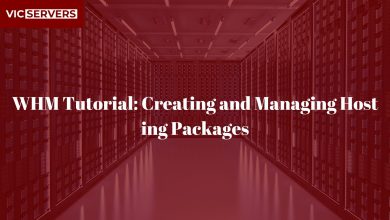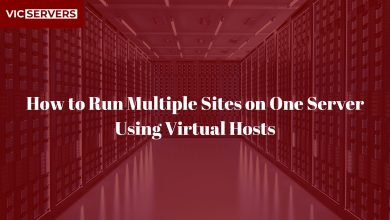Installing and Managing Docker on Ubuntu VPS: A Step-by-Step Guide

Installing and Managing Docker on Ubuntu VPS: A Step-by-Step Guide
If you’re running an Ubuntu VPS from Vicservers, Docker is one of the most powerful tools you can add to your toolkit. It allows you to package applications into containers, making deployment faster, more secure, and consistent across environments.
In this guide, we’ll walk you through installing and managing Docker on Ubuntu, so you can start building and running containers in minutes.
Why Use Docker on Your Ubuntu VPS?
Docker is the go-to containerization platform because it:
- Eliminates “it works on my machine” issues
- Speeds up deployments
- Uses resources efficiently
- Scales easily
Whether you’re hosting a website, running microservices, or experimenting with new apps, Docker keeps your environment clean and predictable.
1️⃣ Update Your VPS
Before installing anything, ensure your package list and existing packages are up to date:
sudo apt update && sudo apt upgrade -y
2️⃣ Install Required Packages
Docker needs some dependencies to work correctly:
sudo apt install apt-transport-https ca-certificates curl software-properties-common -y
3️⃣ Add Docker’s Official GPG Key
This ensures the packages come from a trusted source:
curl -fsSL https://download.docker.com/linux/ubuntu/gpg | sudo gpg --dearmor -o /usr/share/keyrings/docker.gpg
4️⃣ Add Docker Repository
echo \
"deb [arch=$(dpkg --print-architecture) signed-by=/usr/share/keyrings/docker.gpg] https://download.docker.com/linux/ubuntu \
$(lsb_release -cs) stable" | sudo tee /etc/apt/sources.list.d/docker.list > /dev/null
5️⃣ Install Docker Engine
sudo apt update
sudo apt install docker-ce docker-ce-cli containerd.io -y
6️⃣ Enable and Start Docker
sudo systemctl enable docker
sudo systemctl start docker
7️⃣ Verify Installation
docker --version
If you see the version number, Docker is ready to go
Managing Docker on Your VPS
Check Docker Status
sudo systemctl status docker
Run a Test Container
sudo docker run hello-world
List Running Containers
sudo docker ps
Stop a Container
sudo docker stop <container_id>
Remove a Container
sudo docker rm <container_id>
Bonus: Run Docker Without Sudo
If you want to run Docker commands without typing sudo every time:
sudo usermod -aG docker $USER
newgrp docker
Thoughts
Installing Docker on your Ubuntu VPS is straightforward, and once it’s up and running, you’ll unlock an entire ecosystem of portable, efficient applications. Whether you’re a developer, sysadmin, or just exploring, Docker helps you make the most of your Vicservers VPS.
Tip: Keep your Docker version updated for the latest features and security patches:
sudo apt update && sudo apt upgrade docker-ce -y
Deploying Your First App with Docker Compose on Ubuntu VPS
In our previous guide, we showed you how to install and manage Docker on your Ubuntu VPS. Now, it’s time to level up and learn how to use Docker Compose — a powerful tool that lets you run multi-container applications with just one command.
If Docker is the engine, Docker Compose is the orchestration tool that helps you manage apps made up of multiple containers.
Conclusion
With Docker Compose on your Ubuntu VPS, you can manage complex applications easily, deploy faster, and maintain a cleaner server environment. This is a game-changer for developers and businesses looking to scale their services without the headaches of traditional setups.



